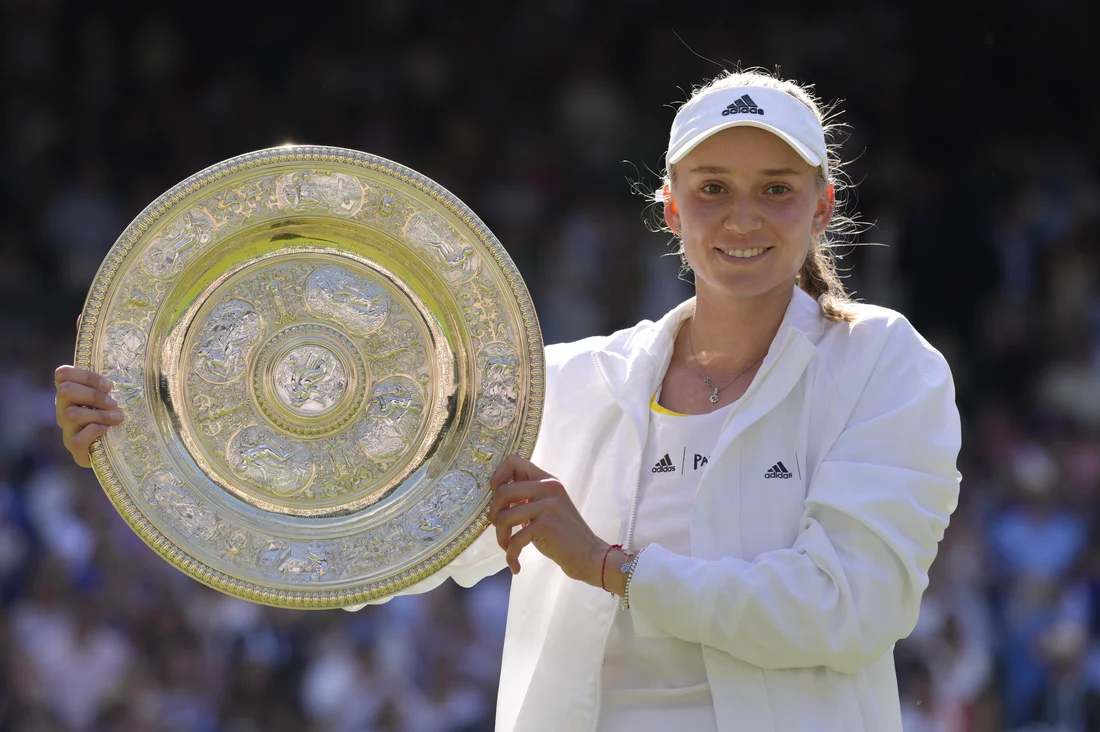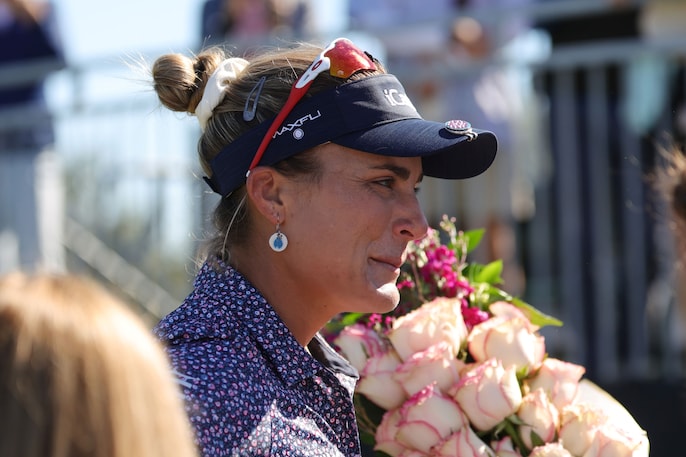Too nervous to wave, Elena Rybakina stepped into the Centre Court sunshine before the Wimbledon final Saturday and kept a firm double-grip on the black-and-red straps of the racket bag slung over her shoulders.
No wave. Not much of a look around. Her play early on betrayed some jitters, too, which makes sense considering it was her debut in a Grand Slam title match.
Nearly two hours of big swinging and plenty of sprinting later, she had won the championship at the All England Club with a 3-6, 6-2, 6-2 victory over Ons Jabeur — the first singles trophy at a major tournament for her adopted country of Kazakhstan.
Rybakina’s miscues mounted. A volley into the net tape with the full court wide open. A netted forehand after Jabeur barely got a short return in. When another forehand went awry, Jabeur broke at love to take the opening set, yelled “Yalla!” — Arabic for “Let’s go!” — and threw an uppercut as she walked to the sideline.
Jabeur was trying to become the first Arab or African woman to win a Slam singles title in the professional era, which dates to 1968.
“I love this tournament so much. I feel really sad. But it’s tennis. There is only one winner,” Jabeur said. “I’m really happy that I’m trying to inspire many generations from my country. I hope they’re listening.”
Rybakina, who beat Serena Williams at last year’s French Open, finally earned her first break chance to begin the second set and went up 1-0 when Jabeur missed a forehand. After saving four break points over her next two service games, Rybakina broke again and soon led 5-1.
Jabeur leads the women’s tour with 13 victories in three-setters this season, but Rybakina came out far stronger in the decider.
She broke once more to begin the third, and went up 3-1.
The world’s best women’s tennis player, Ash Barty, is retiring at age 25
Sports
The world’s best women’s tennis player, Ash Barty, is retiring at age 25
Jabeur needed to find a way to cut down on her mistakes and came close to changing the course of things while down 3-2 in the third. She parlayed a pair of points she won via a drop shot and a lob into love-40 on Rybakina’s serve.
But Rybakina erased that trio of break points and took the game, aided by a couple of 119 mph serves. The hold there made it 4-2, and Rybakina quickly broke again. Now she was just a game away from the biggest victory of her career — and she got to serve for it.
That game began with a 117 mph ace off Rybakina’s red racket. It ended with Jabeur missing a return.
Any apprehension, any unease, felt by Rybakina could disappear. Soon she was stepping over the green wall beside front-row seats to go through the stands for hugs with her coach, her sister and others.



